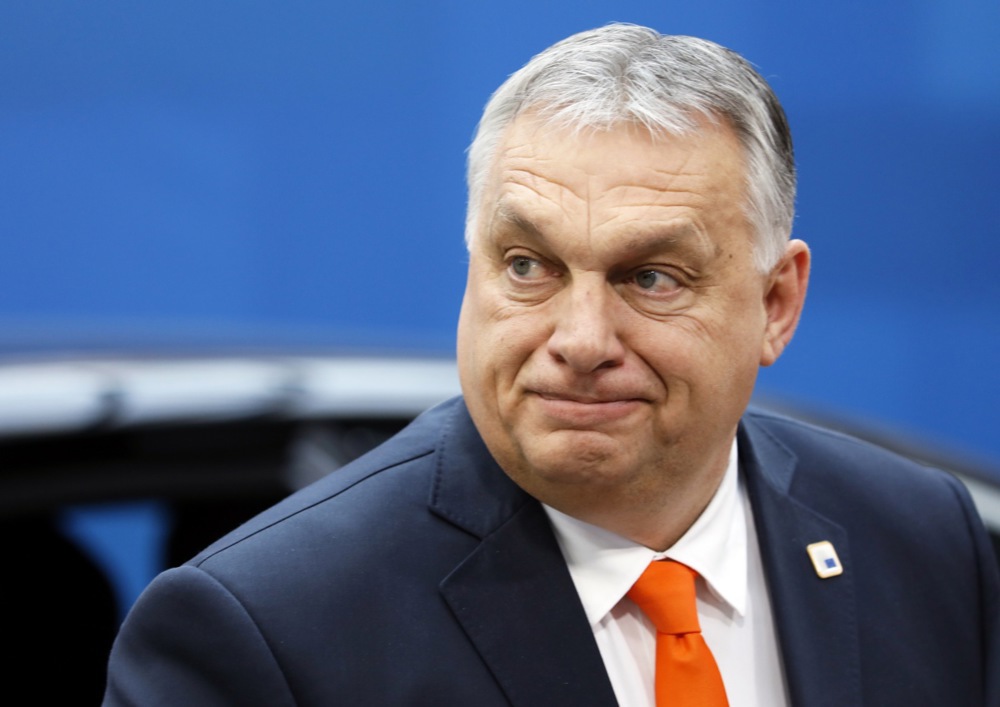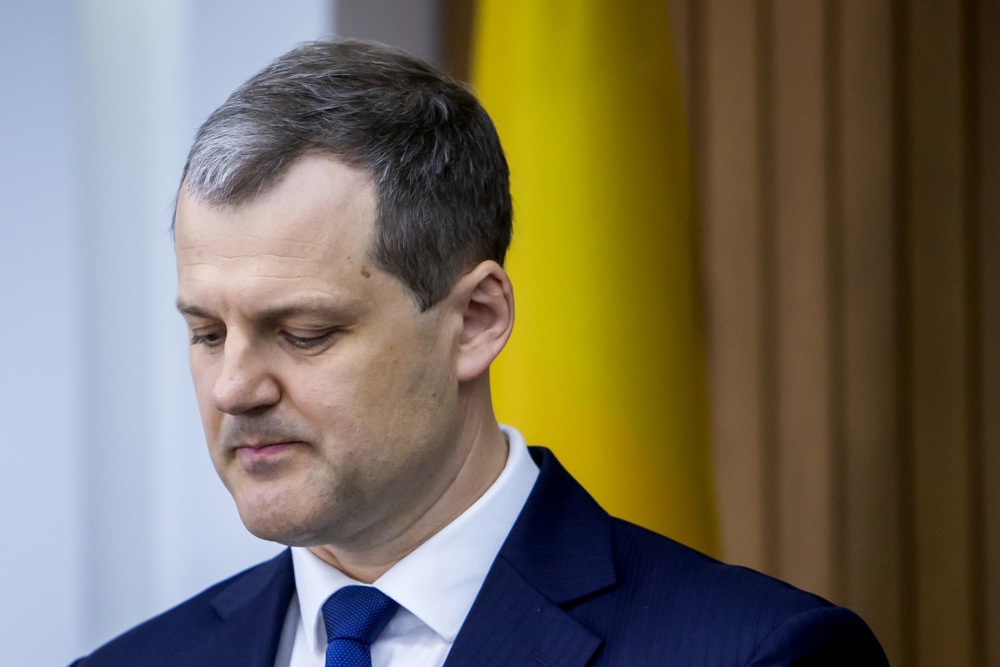Romanian Vice Prime Minister Dragoș Anastasiu has been forced to resign over a high-profile corruption case.
A prominent, controversial entrepreneur, he was appointed by Prime Minister Ilie Bolojan in June as Vice PM in charge of economic strategy and austerity reforms but stepped down on July 27.
Anastasiu’s name had appeared in court documents in a case where one of his companies is accused of paying bribes to a former National Agency for Fiscal Administration (ANAF) tax inspector over an eight-year period.
Between 2009 and 2017, Eurolines group companies, which were owned by Anastasi, allegedly paid more than 784,000 lei (€170,000) in cash and an equivalent value in perks such as vacation packages to a former ANAF inspector.
These payments allegedly took place via a fictional consultancy contract proposed, with a monthly fee of approximately €2,000.
That allegedly secured Anastasiu’s companies favourable treatment during tax inspections and VAT refund approvals.
Anastasiu appeared in court as a witness, not a defendant, after reporting the scheme to Romania’s Anti‑Corruption Directorate.
In his testimony, he described the arrangement as a form of official blackmail disguised as “protection”, stating he felt compelled to comply to avoid criminal jeopardy or the collapse of his business.
Judges concluded the purported contract was merely a cover for corrupt payments. They rejected the argument of a legitimate justification, saying it was “ridiculous” to claim the payments funded human resources services, noting the scale and duration were inconsistent with any such claims.
After the scandal broke, the Romania Government issued a statement defending Anastasiu, saying his role was that of a whistleblower and he was not an accused party.
The government said prosecuting bodies also “did not see grounds” to alter that status and the case concluded with a decision that bore no relation to his duties as Vice PM.
Anastasiu wrote in a Facebook post: “I was a witness in the case, not a whistleblower. There was no legal action against me, and I gained no legal advantage … Some State officials pressured companies, recommending contracts with intermediaries to ‘correct’ audit irregularities. I did what I could within legal bounds once I had full information.”
He said there was a broader context of official pressure on entrepreneurs to pay kickbacks and bribes, framing his actions as a response to coercion rather than proactive corruption.
The National Anticorruption Directorate later nuanced his claims, noting that his former business partner Cristian Băciucu was sentenced to five years and two months for bribery and influence peddling in that case.
Opposition parties, including the Social Democratic Party (PSD) and Alliance for the Union of Romanians (AUR), demanded Anastasiu’s resignation, arguing his involvement in bribery undermined his credibility and the government’s reform agenda.
PSD leader Sorin Grindeanu called for Anastasiu to step down, arguing: “A Vice Prime Minister who commits a crime in continuous form for eight years cannot continue in the Romanian Government.”
PSD Senator Daniel Zamfir stated the scandal discredited Anastasiu’s role in overseeing fiscal reforms.
Political analysts criticised Anastasiu, with some calling his actions unethical and damaging to public trust.
President Nicușor Dan, speaking from Austria, initially said he was unaware of the allegations until journalists raised the issue and promised to inform himself further.
Then, on July 26, Dan commented that the situation was “a big problem,” signalling concern at the highest level.
The Government Employees Union and National Youth and Sports Workers Union issued statements condemning Anastasiu ‘s continued presence in office.
Bolojan said he was not aware of the bribery accusations at the time he appointed the Vice PM.
“We don’t accept bribery or protection fees,” he told outlet G4Media on July 28.
He said he had data on finance ministry employees whose relatives own firms providing accounting or consulting services to privately controlled companies and said he had replaced ANAF’s leadership and sent inspection teams to investigate.
He added he would not immediately appoint a new vice prime minister to replace Anastasiu and would personally oversee the reorganisation of State-owned companies and the Agency for Monitoring and Evaluation of Performance of Public Enterprises (AMEPIP).
After the scandal about Anastasiu broke, the Secretary General of the Government, Stefan Radu Oprea, was also named in a case of tax evasion. On July 28, he posted on Facebook about it, claiming that the courts ruled that it should be dismissed.
“This explains why there is no mention of conviction, rehabilitation or prescription of criminal liability in my criminal record. I have never been penalised or paid any criminal fine,” he said.
Nicușor Dan, the pro-European mayor of Bucharest, won Romania’s presidential election in a second-round runoff against nationalist populist George Simion. https://t.co/mCZE0VUeLE
— Brussels Signal (@brusselssignal) May 19, 2025
Mihail Neamțu, the AUR chairman of the Culture Committee in the Romanian Parliament, was highly critical when he spoke about the Anastasiu case during a live stream on YouTube on July 28.
He said corruption was illustrative of the illiberal “Pro-European” regime: Socialist in substance, oligarchic in method.
“Behind the mask of Brussels-style Euro-liberalism, Romania’s governing elite has fused post-socialist cronyism with the language of Western virtue,” he said.
“This ruling class—praised as ‘pro-European’ — is, in reality, a patronage machine indistinguishable from late-stage oligarchies.”
Neamțu noted that the State did not prosecute Anastasiu: “He turned State witness. This is not accountability; it is selective exoneration.”
“Anastasiu’s wealth came not through innovation, but through a transportation business that thrived in the grey zones of Romania’s semi-formal economy. Like in late imperial systems, it wasn’t brilliance but proximity to bureaucratic leniency that guaranteed success.”
Neamțu said there was selective justice with people such as Anastasiu getting away with what they did while less prominent people were hit hard by the full force of the law.
“While political magnates like Anastasiu avoid prison, a 74-year-old woman named Maria Cociorvan died under the pressure of false bribery accusations. She was posthumously acquitted in 2023. This is the hallmark of all decaying republics: the law strikes the feeble and exempts the connected,” Neamțu said.
Neamțu said the tax authority (ANAF) “operates not as a neutral enforcer of fiscal law, but as a weaponised bureaucracy”.
“Arbitrary inspections, delayed VAT returns, and ‘soft blackmail’ are institutionalised. Entrepreneurs either comply with the racket or perish economically.”
“Like their counterparts in Brussels, the Romanian elite disguises decadence in the language of integrity,” Neamțu said.
“This [Anastasiu] case study mirrors a larger Western trend: state institutions decouple from the demos and merge with select economic interests. Romania is not an exception but a premonition.
“What starts as tolerated corruption ends, eventually, in democratic collapse. As Thucydides warned, the corrosion begins with ‘words losing their meaning’ — and it ends with republics losing their soul,” he said.
COMMENT: 66% of Romanians say Ceaușescu was a good leader. Not because they forgot the crimes of Communism, but because they have witnessed "the delusions and authoritarian instincts of the snakes and thieves who now rule," writes @GElefteriu. https://t.co/Vghey6vkvj
— Brussels Signal (@brusselssignal) July 24, 2025





